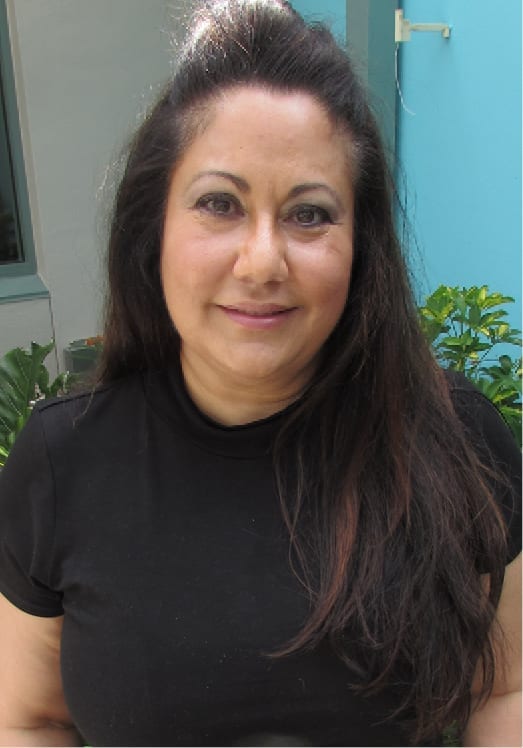 In 2009, Amal’s husband dragged her alongside his car until she fell to the pavement. Then, he tried to run her over as she lay unconscious. She says it was the best thing he had ever done for her.
In 2009, Amal’s husband dragged her alongside his car until she fell to the pavement. Then, he tried to run her over as she lay unconscious. She says it was the best thing he had ever done for her.
The oldest daughter of two college professors, Amal grew up in the Midwest; her father had emigrated from Iraq in the 1950s. Her teen years were influenced by the family’s Middle Eastern culture. “There was no dating,” she says. “The only way for a woman to advance in class was to marry well, unless you were very beautiful or very well-educated.”
Amal chose education. She was pursuing her masters at San Diego State University when she met Philip on a blind date. He was attractive and charming, but he also seemed a bit arrogant and she was focused on her studies. For a few months, he showed up at her apartment, trying to entice her on another date. “No one had ever shown that much interest in me,” she recalls.
By their third year of marriage, Philip’s controlling behavior had become increasingly abusive—first sexually, then physically, emotionally and financially. The couple owned a successful business and by outward appearances, they lived a plush lifestyle. Yet, it was anything but plush. When she asked about his extra-marital affairs or refused his demands, he would become violent. Law enforcement was frequently called to their home. One time, Philip called police, reporting she had abused him. The bloody hole where he bashed her head against the wall proved otherwise and he was arrested. He called her from the police station. “Don’t blink!” he warned— then hung up.
In fear for their two sons’ physical and emotional safety, Amal placed the boys in boarding school. After sending them away, she became depressed and suicidal, and sought counseling.
But she remained.
In her own way, Amal formed coping mechanisms, planning escapes that never materialized. She became an expert at saving up cash secretly diverted from their business, but the stash would inevitably be used for unexpected expenses.
Amal’s final assault took place the same year she was accepted into a doctorate program at Harvard Business School. “I was so excited. It was the beginning and the end of my life,” she says. Harvard wouldn’t become a reality. It was during a fight over finances that Philip tried to kill her with his car as bystanders watched in horror. “He did me a huge favor in that he did it in broad daylight and at a busy intersection because, had this happened in the privacy of our driveway, I would probably still be with him or I would be dead,” she says. Philip was charged with assault with a deadly weapon; he served three months in jail and three years of probation.
While packing to leave, Amal says she found hidden recording devices strategically placed around the house to spy on her. “When you have been victimized for so long, helplessness is so deeply ingrained in your mind and your soul that when your eyes are opened, you are left simply gasping and wondering, ‘Who have I been living with?’”
Philip dissipated their $4 million estate; there was nothing left for alimony or child support. She left with her personal belongings, dogs and a car. Amal and her youngest son moved to the Naples area to live with her father. She learned of The Shelter for Abused Women & Children program “Women of Means” and began attending group sessions.
After starting her new life, she says a former employee shared that her ex-husband offered him $5,000 to find her. She left her father’s home and moved into the emergency shelter. “I was scared and ashamed,” she recalls. “I could not believe what my life had become. I went to my room, got into bed and wouldn’t come out.” It took several weeks and a patient advocate to help Amal face her reality. “I made the decision to get better for my son,” she recalls. “I had to stop feeling sorry for myself, remember who I was, what I had, and start using it.”
Amal was finally able to spend two years in The Shelter’s transitional housing program, working, returning to school and completing credits toward a counseling degree. Today, she assists juveniles in crisis and offers life coaching.
“It took many years to recover from the abuse inflicted upon me and my children,” she says. “Had it not been for the love of my family and the support of the Shelter, I would have forever forgotten who I am.”





